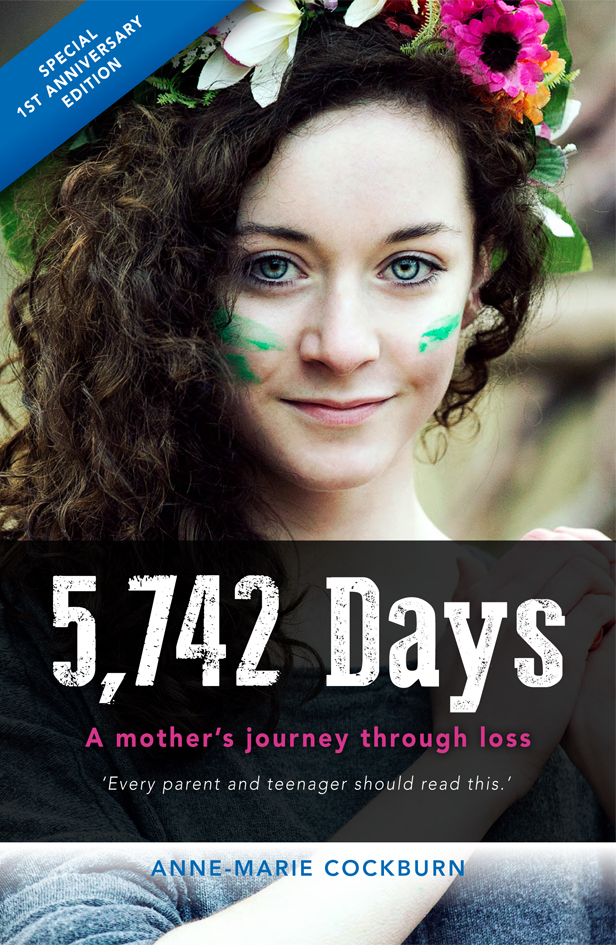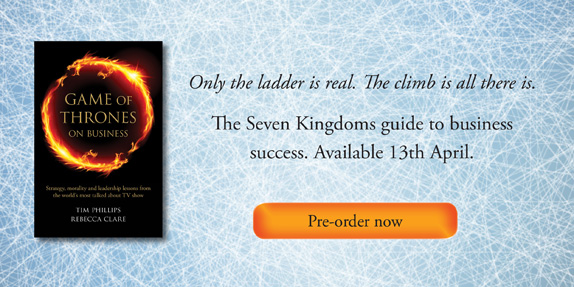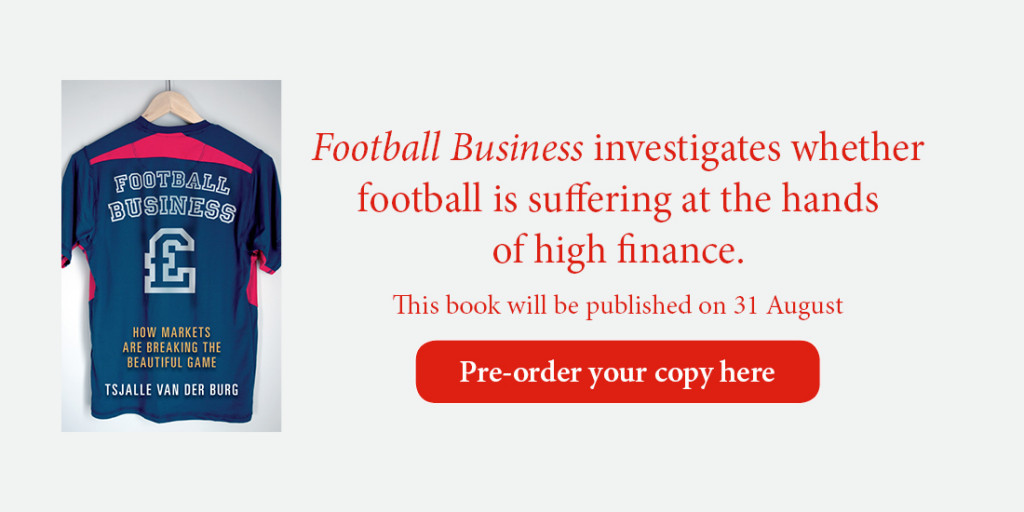Author Archives: Rebecca
Bereaved mother wants to spread the word about consequences of recreational drug use
7 July 2014 by Rebecca in 5742 Days, Lifestyle
An Oxfordshire mother who wrote a book documenting her experiences after losing her only daughter to recreational drug-use is making free copies available to readers around Oxford city centre in the hope that, by reading of her experiences, others can avoid the fate suffered by her daughter.
Sunday 20 July 2014 is the first anniversary of the death in Oxford of Martha Fernback. To mark the occasion Martha’s mother, Anne-Marie Cockburn, author of 5,742 Days: A mother’s journey through loss, and her publisher Infinite Ideas will leave free copies of a special anniversary edition of the book, published this month, in various parts of the city. These free copies carry a sticker inviting ‘Infinite Readers’ to take the book away, read it and then bring it back to the same spot for someone else to experience. The book will be found in public places throughout central Oxford on 19 July 2014.
Anne-Marie has recently called for drugs to be regulated. She says:
 “What is crystal clear to me now is that strict and responsible regulation of drugs is vital. This means taking drugs out of the hands of dealers and treating them in the same way as pharmaceuticals. Licensed drugs are labelled, ingredients are listed and necessary dosage information is provided.
“What is crystal clear to me now is that strict and responsible regulation of drugs is vital. This means taking drugs out of the hands of dealers and treating them in the same way as pharmaceuticals. Licensed drugs are labelled, ingredients are listed and necessary dosage information is provided.
Under prohibition, it is impossible to fully educate people as there is no way to tell what drugs contain, but despite this, many people are still willing to take risks.
It is important to stress that we need to do what we can in order to deter young people from taking drugs. However, had Martha known that what she was about to take was 91% pure, she would probably have taken a lot less, in fact I’d go as far as to say that she might still be alive.
Martha wanted to get high, she didn’t want to die. No parent wants either, but there’s one of those options that’s preferable to the other.”
 Anybody who finds a book can let Anne-Marie and Infinite Ideas know via Twitter @5742Days; @Infinite_Ideas.
Anybody who finds a book can let Anne-Marie and Infinite Ideas know via Twitter @5742Days; @Infinite_Ideas.
ENDS
For further information contact:
Catherine Holdsworth: catherine@infideas.com
Telephone: 01865 514888
5,742 Days
A Mother’s Journey Through Loss
(Special 1st Anniversary Edition)
Anne-Marie Cockburn
£9.99 | Publication date: 7 July 2014 | ISBN: 9781908984333
Paperback | 198 x 129mm |174pp | Published by Infinite Ideas
Notes for editors
- Books will be left in restaurants, cafés, museums and public places around the city centre on 19th July, exactly 52 weeks after Martha Fernback died.
- As a legacy of Martha’s death, Anne-Marie set up a website to encourage others to become involved in safeguarding the lives of young people: www.whatmarthadidnext.org
- To commemorate Anne-Marie’s last perfect day with Martha at the beach the day before she died, she’ll be holding a public picnic on Saturday 19th July from 12.30pm at Hinksey Lake, where Martha died. Just bring along a picnic and a blanket to sit on.
Climbing the ladder of chaos – why we all need some Littlefinger in us (ahem)
7 July 2014 by Rebecca in Business and finance, Entertainment, Game of Thrones on Business
Can we control the future? Maybe, says Tim Phillips, a better question is should we even try?
There’s a famous speech, one of my favourite bits, in Game of Thrones in which Petyr Baelish, the amoral political fixer known as Littlefinger, dismisses the historical texts as, “a story we agree to tell each other over and over, until we forget that it’s a lie.” When Lord Varys points out that the alternative is chaos, Littlefinger points out that chaos isn’t something to fear:
 If the inhabitants of the seven kingdoms are fully occupied trying to avoid falling into a pit of chaos, the environment in which they live doesn’t help. When dead people can be reanimated, for example, which must be disorientating. ‘Winter is coming’, we are told at the beginning, which reminds inhabitants of the time when a previous winter lasted a generation. Why did it do that? Maybe it doesn’t matter much if there are undead people coming to kill you as a result.
If the inhabitants of the seven kingdoms are fully occupied trying to avoid falling into a pit of chaos, the environment in which they live doesn’t help. When dead people can be reanimated, for example, which must be disorientating. ‘Winter is coming’, we are told at the beginning, which reminds inhabitants of the time when a previous winter lasted a generation. Why did it do that? Maybe it doesn’t matter much if there are undead people coming to kill you as a result.
So Littlefinger has a point: when things change, old certainties become less valuable, less useful, no matter how comforting they are. Yet the idea that our societies and lives are in equilibrium is alluring for all of us.
We build it into the way we teach business, in which the forces of supply and demand balance to create stable prices and employment and growth. Yet, at the same time, we also know this isn’t really true. The economist Joseph Schumpeter was the first to identify a process he called ‘creative destruction’, in which innovation destroys the old world to create a better one. Real entrepreneurs don’t just tweak existing ideas, they rip them up and start again. If you do this successfully, you get your reward because you are in a field of one: but the risk of disaster is much greater. Schumpeter realised that disequilibrium is normal. We also now know that this applies in society, or to the weather.
It doesn’t even take an entrepreneur to create disequilibrium. In the UK, one in seven workers have been made redundant since the start of the financial crisis, which would have seemed inconceivable a decade ago. The chaotic nature of what economists call ‘the business cycle’ means that we might have a good idea of how secure our jobs will be next month, but no clear answer to the question if we ask about next year, and certainly no idea of the next 10 years.
We instinctively value continuity in our lives and our societies, and many of us react irrationally to disruptive change. In a recent experiment, the Royal Statistical Society took people who overestimated the problems of immigration, and confronted them with well-researched facts that contradicted their ideas. The people overwhelmingly decided that the statistics must be wrong.
We all think we wouldn’t do the same thing in our lives, but most of us react to sudden change by holding on to the stories we tell ourselves, even if they are not true. Not all of us can be a Littlefinger, climbing the ladder out of chaos, or a Schumpeterian entrepreneur, who creates the ladder in the first place.
We spend our lives in the understandable hope that chaos doesn’t come to our homes, families or workplaces. Insurance, savings and sandbags in the shed may help; but to flourish, rather than survive, we need to have a little bit of Littlefinger in us, and recognise that clinging exclusively to ‘the realm, or the gods, or love’ will eventually put us on the receiving end of some process of creative destruction.
Tim Phillips is author of Niccolo Machiavelli’s The Prince, Bertrand Russell’s The Conquest of Happiness, and Charles Mackay’s Extraordinary Popular Delusions and the Madness of Crowds.
Getting your message across – Westeros style
1 July 2014 by Rebecca in Business and finance, Entertainment, Game of Thrones on Business
It’s tricky trying to get messages around in the Seven Kingdoms, which seem to lack a basic postal or parcel delivery service, even in the cities – and no one has email. They don’t even have social media. But they make a pretty good job of it.
Long distance message-passing is done by attaching a letter to a raven. According to the books, the value of a carrier-raven was taught to the First Men of Westeros by the Children of The Forest. At this point the birds could talk, which would have ensured an even higher quality of service. A verbal message is encrypted (it exists in the raven’s little brain, and so is harder to intercept without catching every passing raven and torturing it with tiny instruments). It would also have been easier to direct the message to the person who needs to read it, because you could have told the ravens that your letter was urgent, so not to hang around scavenging, for example. This scavenging thing, it seems to me, would be an argument in favour of pigeons. Pigeons fly direct, without stopping to feast on corpses.
 With this constraint, the rulers of Westeros have become extremely adept at communicating the Big Ideas. They really get the value of symbolism as a way to make a point efficiently. There’s a phrase in advertising: ‘show, don’t tell’. So, if you want to make thousands of people afraid of you, don’t make long speeches telling them to be afraid, or write lots of nasty letters and attach them to every raven you can find. You do something unexpected that should make them think: watch out.
With this constraint, the rulers of Westeros have become extremely adept at communicating the Big Ideas. They really get the value of symbolism as a way to make a point efficiently. There’s a phrase in advertising: ‘show, don’t tell’. So, if you want to make thousands of people afraid of you, don’t make long speeches telling them to be afraid, or write lots of nasty letters and attach them to every raven you can find. You do something unexpected that should make them think: watch out.
In the disordered world of Game of Thrones, it’s hard to list without giving away spoilers the (almost weekly) moments when some ruler or other follows this plan, so I’ll try to be general. Pouring molten gold on an ambitious person’s head, walking into your husband’s burning funeral pyre and walking out again the next day to show that you’re a bit special, or chopping off the hand of the best swordsman just to show everyone that you can, isn’t necessarily a communications strategy to follow at home or the office. But, in the real world, communications directors who work for our largely-ignored politicians, who weep silently as they arrange another tired visit to a small factory somewhere in the midlands so that their boss can be filmed in a hi-vis jacket pretending to know what the machine does, must wish they lived in Westeros from time to time.
We’ve mentioned Machiavelli before as a link between Game of Thrones and our world. In The Prince, he relates how Pope Alexander VI cleaned up the Romagna province. With a weak government and crime everywhere, the Pope sent Remirro de Orco, his fixer, to clean house by punishing lots of people harshly and cruelly. Everyone hated Remirro, because he was good at what he did: Romagnan crime rates dropped, with a large amount of bloodshed along the way. So, when the job was done, ‘Alexander had him cut in half, and placed one morning in the public square’. Result: everyone liked that there was less crime, and they liked the Pope even more. Remirro showed that no one is above the law, but Alexander showed that no one was above the Pope.
Here lies the difference between sending a message and making a gesture. When a prime minister is photographed pointing at something while wearing a hard hat, it no longer sends us any strong message, because it is what we expect. It delivers no new information. If we even notice, we shrug. A strong message is easiest to convey when it implies new clarity and unexpected change, even if only for a few people. That’s why the most memorable messages often emerge from disorder and confusion, and why most big gestures in our world are so forgettable.
You might also like: What Machiavelli knew and Robb Stark found out; Why Game of Thrones is better than PowerPoint; What Game of Thrones tells us about corporate inbreeding.
Sugar – do we really need to eat less of it?
26 June 2014 by Rebecca in Lifestyle
The focus of the obesity crisis seems to have turned to sugar. While doctors and nutritionists suggest that we need to cut our sugar intake radically, the food industry continues to defend sugar and say it’s wrong to demonise one food. While obesity probably shouldn’t be blamed on just one nutrient, eating too much sugary food is not good for our health (and let’s face it, most of us already know that). Here, nutritionist Kate Cook, author of The Corporate Wellness Bible, takes us through the basics and suggests simple ways to reduce sugar consumption.
Have you ever felt like curling up under your desk and spending the afternoon snoozing? Or been in serious need of matchsticks to prop your eyelids open? And do you ever wonder why this always seems to happen in the middle of a vital meeting, despite three cups of coffee?
The energy equation
We need sugar (glucose) to fire our system. It’s the fuel that gives us our energy. However, too much is deemed by our body to be dangerous (think of diabetics).
We obtain this fuel largely from our food. A hormone called insulin specifically lowers these blood sugar levels and adjusts them according to our minute-by-minute needs. We don’t have very much sugar circulating at any one time because as soon as we do, in comes insulin to normalise the level. When blood sugar levels are low, we rely on stored glucose (glycogen) found in the muscles and the liver, which helps maintain this delicate equilibrium. Once stored glucose is used, more food will be required to sustain glucose production.
 Not all food was created equal. Some foods ‘burn’ (meaning they’re converted into sugar) quickly while other foods ‘burn’ slowly. These foods are called high and low glycaemic index foods (GI foods) respectively. The GI index is a way of measuring foods that are converted to glucose at different rates. But don’t get hung up on the GI index, as confusingly you’ll see it published in different places with different values. As a very simple rule of thumb, white things (e.g. potatoes, pasta, bread, parsnips, white rice) are like rocket fuel while dense, thick, fibrous, brown or green things (e.g. lentils, chickpeas, broccoli, brown rice) are going to burn more slowly and are our great energy sustainers. For example, whereas glucose (sugar) scores 100 on the GI scale, a lentil comes in at a cool 42. The important thing to remember is that it isn’t necessarily foods that we traditionally think of as sweet that cause the problems. A ‘sweet’ potato, for instance, actually scores quite low, as it is wonderfully fibrous.
Not all food was created equal. Some foods ‘burn’ (meaning they’re converted into sugar) quickly while other foods ‘burn’ slowly. These foods are called high and low glycaemic index foods (GI foods) respectively. The GI index is a way of measuring foods that are converted to glucose at different rates. But don’t get hung up on the GI index, as confusingly you’ll see it published in different places with different values. As a very simple rule of thumb, white things (e.g. potatoes, pasta, bread, parsnips, white rice) are like rocket fuel while dense, thick, fibrous, brown or green things (e.g. lentils, chickpeas, broccoli, brown rice) are going to burn more slowly and are our great energy sustainers. For example, whereas glucose (sugar) scores 100 on the GI scale, a lentil comes in at a cool 42. The important thing to remember is that it isn’t necessarily foods that we traditionally think of as sweet that cause the problems. A ‘sweet’ potato, for instance, actually scores quite low, as it is wonderfully fibrous.
You can raise your blood sugar by another mechanism. Stick your head in the mouth of a man-eating shark, then quickly take it out again and swim like hell for the shore. This would certainly pick your blood sugar up rapidly, as powerful stress hormones would raise blood sugar to give you enough energy for your clever exit strategy. We do this all the time, but usually our boss, gas bill or deadline is the cause of our stress and not man-eating sharks. Of course there is an easier way of picking up blood sugar levels – have a fag or a cup of coffee. These are both stimulants, which stimulate the adrenal glands (where those stress hormones come from) to release sugar from storage. But what goes up, must come down, hence staying awake in the meeting becomes a challenge.
So, what’s the problem with the blood sugar whizzing up and down all the time? First, the pancreas, where all that insulin is produced is going to get worn out. Second, you’re going to get dips of energy as the blood sugar levels plummet when insulin tries to lower them. Third, insulin is also a fat storage hormone, so if it overreacts and there’s continuously too much insulin in the system, eventually you’ll put on weight. Commonly this appears as those cute love handles or that attractive tyre round the middle. And where do you see this phenomenon most commonly? On executives who are eating the wrong things, having too many cups of coffee and getting stressed out.
More on blood sugar
Your body can only deal with one to two teaspoons of sugar in the blood at any one time. So, if, for example, you drank a bottle of a glucose-based sports drink – the sugar in the blood would rise steeply. The body protects itself from too much sugar in the blood by releasing a hormone called insulin. Insulin lowers the sugar in the blood rapidly. It is a fat storage hormone – unfortunately if there is too much insulin released it will encourage the storage of the foods you eat as fat. Therefore you need to keep your levels of blood sugar stable in order to prevent the release of too much insulin so that you can reduce fat storage and lose weight, and in order to maintain a steady flow of energy.
I have devised a very easy way to follow a lower glycaemic index system without having to count or know what each individual food scores. How quickly a food releases its sugar is measured on the Glycaemic Index scale. Sweet, fluffy and white foods (e.g. ripe bananas, white bread, cake) have a high GI score and cause blood sugar to rise rapidly. Thick (dense), fibrous, protein foods (e.g. oats, rye, pulses, eggs) have a low GI score and do not release their sugars rapidly, keeping blood sugar more stable.
Slow burn foods are:
Thick (dense), fibrous, protein = low GI
Fast burn foods are:
Sweet, fluffy and white = high GI
Adding fibre and protein makes food burn more slowly. For example, if you had an apple and you ate it with a handful of nuts it would burn more slowly. Or if you had a sweet potato and added some fish it too would burn more slowly.
Keeping your blood sugar more stable helps maintain energy; it prevents the mid-afternoon slump, helps maintain a healthy weight and also keeps stress under control because the blood sugar is not swinging around. Stable blood sugar also helps keep cravings under control – e.g. cravings for sugar, alcohol or caffeine – as these act as stimulants to prop the blood sugar up.
The key to eating well is preparation. If you ensure you have the right foods to hand you are less likely to reach for the rocket fuel foods such as biscuits and sugary drinks when you feel an energy slump coming on. If you don’t have the time to go shopping try grocery shopping online. Once it’s set up it’s wonderfully easy. The key to healthy eating is: ‘Be prepared.’
What Game of Thrones tells us about corporate inbreeding
25 June 2014 by Rebecca in Business and finance, Game of Thrones on Business
Incest – it’s not about the sex, says Tim Phillips
‘Alongside kinslaying and the violation of guest right, incest is proscribed by every major religion in Westeros,’ the Game of Thrones Wiki tells us, ‘Children born of incest are deemed abominations.’
Didn’t stop them doing it though. Clearly there’s ‘proscribed by every major religion’ and ‘who are you to tell us what to do?’ For those of you not familiar with the Game of Thrones backstory, King Aerys II Targaryen (the Mad King) married his own sister, Queen Rhaella Targaryen. King Aerys made good on his nickname by going insane thanks to inbreeding, and his son Viserys wasn’t all there either.
 This, you might conclude, would be an argument against imitating his actions. But Queen Cersei and her brother Jaime Lannister have, even by the beginning of Game of Thrones series 1, been going at it for years. This has the unfortunate consequence that they produce barmy King Joffrey, a sort of psychotic Milky Bar Kid.
This, you might conclude, would be an argument against imitating his actions. But Queen Cersei and her brother Jaime Lannister have, even by the beginning of Game of Thrones series 1, been going at it for years. This has the unfortunate consequence that they produce barmy King Joffrey, a sort of psychotic Milky Bar Kid.
This is a pretty accurate depiction of the sexual behaviour of European royalty through several centuries. For example, John V of Armagnac in the 15th century took up with a young girl called Isabelle who was considered one of the greatest beauties in France. This was controversial because there had been talk of marrying her to Henry VI of England before he stepped in. It was even more controversial because she was also his sister. After they had two children John V promised to keep his codpiece buttoned while his sister was around, so the kerfuffle didn’t exactly die down when they got married (claiming the Pope had told them it was OK), and had a third child.
The literal aristocrats of incestual ick were undoubtedly the Habsburgs, who bred so enthusiastically with their cousins that, by the 17th century King Charles II was ‘physically disabled, mentally retarded and disfigured’. Academic studies calculate that Hapsburg marriages had up to 25% of genes in common.
You don’t have to be a disciple of Sigmund Freud to be aware that incest fantasies are common; every internet porno site has an incest category. Well, that’s what PEOPLE TELL ME. But the Habsburgs weren’t being kinky. Royal incest is about power. It kept the fortune in the family – if your extended family was also in charge of the country next-door, then a political alliance meant a family wedding, whether you were into that sort of thing or not.
So, if we concentrate on the sex, we’re missing the point. This is about power, and keeping power close. Power influences the way the cake is cut: the more you concentrate power, the more of the cake you keep. What psychologists call ‘other-regarding behaviour’ is more common among those genetically closer to us, or those with a similar world view.
It often isn’t a plan, but an outcome of a natural (though misguided) thought process, in which we trust and value people who look and talk like us. People in power share power with their ‘family’. Few discriminate consciously, but only a small group of the population has the social capital (confidence, education, powerful friends and common experiences) to be part of the ‘in group’. Are these always the best people to wield power? Your opinion may be influenced by whether you are in that group or not.
We assume that shareholder capitalism places controls on CEOs and their executive officers, just as royal alliances between families were meant to moderate the behaviour of each ruler: but when the powerful actors are ‘family’, the opposite can often be the case.
This survey shows how corporate dynasties intermarry by sitting on each other’s boards. One result: a small group effectively decides one another’s compensation, and we all know how executive pay has ballooned in the last 30 years at a far greater rate than profits have increased. That’s not criminal. But scandals at Enron, WorldCom and many others – in which the performance of a supine board has been shown to be a contributing factor – shows what can happen when intermarriage gives too much power, with too little oversight, to the King Joffreys of the corporate world.
Tim Phillips is author of Niccolo Machiavelli’s The Prince, Bertrand Russell’s The Conquest of Happiness, and Charles Mackay’s Extraordinary Popular Delusions and the Madness of Crowds.
You might also like: What Machiavelli knew and Robb Stark found out; Why Game of Thrones is better than PowerPoint.
Are the high salaries of footballers like Luis Suárez justified?
23 June 2014 by Rebecca in Business and finance, Football Business
By Tsjalle van der Berg, author of Football business
Edson Arantes do Nascimento, who you know as Pelé, had the nickname ‘O Rei do Futebol’. He will forever be associated with one particular piece of skill at the 1970 World Cup in Mexico. From the halfway line, the Brazilian fired the ball over the Czech keeper, who was way off his line and turned to see the ball dip just in time. Nothing like it had ever been seen before during a World Cup match. Unfortunately I was not allowed to watch it on TV as a child in 1970 because the match was broadcast late at night. So I was very pleased when footage from the game was recently shown on TV. And it was worth watching. The keeper was not even that far out of his goal, and the trajectory of the ball was even more impressive than I had imagined. Pelé even had a surprise in store for me: the ball went just wide.
These days you see the occasional lob like Pelé’s, and now and then one even goes in. In 2014, Wayne Rooney scored a fantastic goal like that against West Ham United. Does that make him better than ‘O Rei do Futebol’? Sadly, no. What made Pelé’s lob so special was that he was the first who dared to try a lob in an important match. It may well be that the Pelé of old would have struggled in today’s football. Today’s players are physically and tactically stronger. No matter. Pelé gave people pleasure because he was better than his contemporaries.
What would have happened if the hundred best players of all time had never been born? Other players would have taken their places as superstars. Someone else would have been the first to lob the keeper from the halfway line. Of course we would have had to do without a few delightful pieces of skill, such as Robin Van Persie’s beautiful header against Spain during the present World Cup. Still, the pleasure had by all the fans put together would not have been much less as a result. Because football’s main attraction is the excitement and the contest against the opposition.
What does this mean for the debate about players’ wages? Are Messi’s millions justified because he entertains so many people and because, partly as a result, people are prepared to pay so much to watch Barcelona on TV and buy club merchandise? From the individual perspectives of Barcelona and Messi, there is something to be said for that view. But you can also take a broader view. Without Messi, someone else would be the world’s best payer, and that player would also be much loved. The ultimate reason fans spend a lot of money on football is that the sport is so popular. And that is largely due to the volunteers, supporters and rather poorly paid players of a previous era who made football what it is today.
So in my opinion, the salaries of present-day players are too high. It’s not the stars that make football. It’s football that makes the stars.
 Without Luis Suárez, Liverpool would not have finished second last season. They might not even have qualified for the lucrative Champions League; Everton could have qualified instead. So from Liverpool’s perspective, it is quite justified that Suárez earns many millions a year. And for the fans of the club, Suárez is really worth his salary as he has given them so much joy. Moreover, he did a lot to brighten up the lives of his fellow countrymen by helping Uruguay beat England last week. No-one in Uruguay will be begrudging him his salary now. But to the world as a whole, his value is far more limited. For instance, Uruguay’s joy after the two Suárez goals stands in contrast to the pain of the losing country – and Suárez is responsible for that too. Perhaps all the suffering he has caused should be docked from his wages …
Without Luis Suárez, Liverpool would not have finished second last season. They might not even have qualified for the lucrative Champions League; Everton could have qualified instead. So from Liverpool’s perspective, it is quite justified that Suárez earns many millions a year. And for the fans of the club, Suárez is really worth his salary as he has given them so much joy. Moreover, he did a lot to brighten up the lives of his fellow countrymen by helping Uruguay beat England last week. No-one in Uruguay will be begrudging him his salary now. But to the world as a whole, his value is far more limited. For instance, Uruguay’s joy after the two Suárez goals stands in contrast to the pain of the losing country – and Suárez is responsible for that too. Perhaps all the suffering he has caused should be docked from his wages …
Dutchman Tsjalle van der Burg is an economist and Robin Van Persie fan



